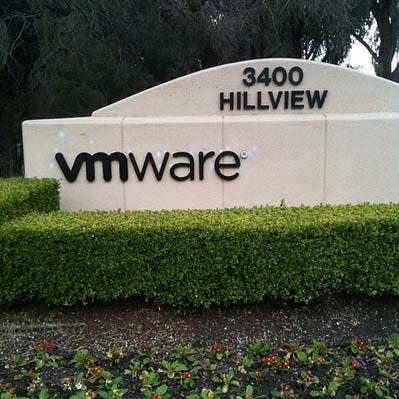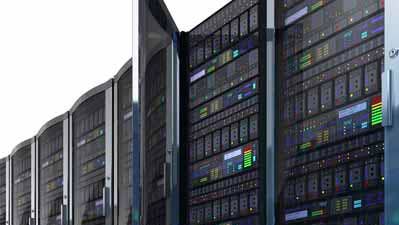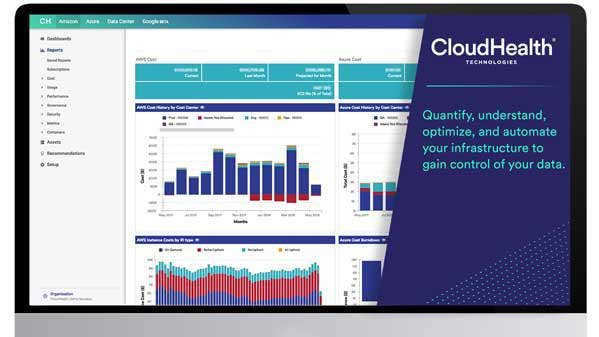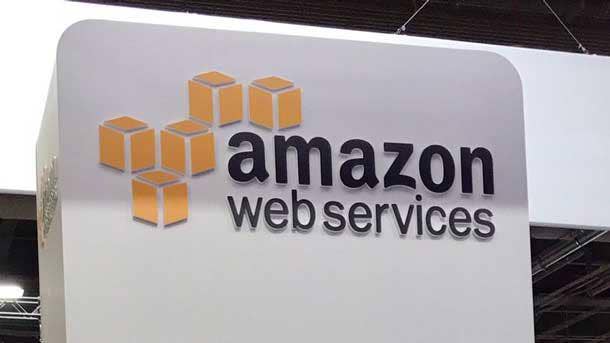5 Things To Know About VMware's Cloud Strategy

The New VMware
The longtime private cloud kingpin has made a massive shift over the last few years. Once threatened by public cloud on one front, containers on another, VMware has now largely repositioned itself as an infrastructure software company that looks to facilitate adoption and management of both technologies.
During a news briefing on Monday, VMware executives discussed innovations that are driving forward that ambitious cloud strategy.
The embrace of hybrid and multi-cloud infrastructure, as well as containers alongside virtual machines, is why, for enterprises, "we're going to be the strategic partner for the next decade, just as we were for the last 20 years around virtualization," said Ajay Patel, senior vice president of VMware's Cloud Provider Software unit.
With updates to VMware Cloud Foundation, the CloudHealth management service, and expanding partnerships with AWS and Dell EMC, VMware looks to maintain its leadership position in the cloud era.
It's the "breadth and comprehensive nature of our offerings that uniquely sets VMware apart as we go to market," Patel said.
Here’s a look at five things to know about the company’s cloud strategy.

Container Coexistence
VMware doesn't see containers and virtual machines as exclusive technologies that are at odds with each other, as once thought.
"Debate of containers or VMs is long gone," Patel said. Both technologies, after all, are just "infrastructure resources."
Leading VMware's efforts on the container front is PKS, an integrated Kubernetes management service developed alongside Pivotal and Google.
Whichever infrastructure type the customer chooses, VMware will offer comprehensive management solutions to support it, Patel said.

Row of network servers in data center
Cloud Foundation on VxRail
VMware Cloud Foundation will see new capabilities added with the release of version 3.7, including its debut on the hyper-converged appliance jointly developed with parent Dell EMC.
The integrated data center platform that eases provisioning of hybrid cloud infrastructure should be thought of as "the new OS for the cloud," Patel said.
The latest Cloud Foundation release benefits from co-engineering efforts with Dell EMC that make Cloud Foundation for the first time available on VxRail.
The integrated hardware and software solution enables end-to-end lifecycle management and offers "highly standard, highly automated integrated appliances optimized for performance and availability," Patel said.
The "most-seamless way to deploy hybrid cloud is to deploy VMware Cloud Foundation with VxRail," Patel said.

CloudHealth Paves The Multi-Cloud Journey
In a multi-cloud world, VMware sees next-gen management and cost-optimization capabilities as a major differentiator.
CloudHealth, a strategic acquisition VMware closed last year, is leading that charge, delivering integrated management—not just across public and private clouds, but also virtual machines and containers.
"CloudHealth is our acknowledgement that the world is going to be multi-cloud," Patel said.
Joe Kinsella, CloudHealth's founder and CTO of CloudHealth by VMware, discussed some of the Software-as-a-Service platforms upgrades.
The latest update introduces multi-cloud reporting that centralizes usage and cost metrics and aligns them from a business perspective—"a very powerful way to manage all your clouds," Kinsella said.
CloudHealth is also being integrated with Wavefront, a big data solution VMware acquired in 2017 that delivers real-time analytics for monitoring and managing the performance of IT systems.
CloudHealth will pull in Wavefront metrics for a more thorough economic analysis of infrastructure spending.
CloudHealth has also launched a multi-dimensional reporting API and editor that allows users either programmatically or through a user interface to synthesize custom sets of data around cost and usage, Kinsella said.

VMware Cloud On AWS
The groundbreaking partnership is humming along, having crossed the 100-customer threshold at the end of last year and now available in 13 regions around the world.
VMware Cloud on AWS "is really our marquee offering" as far as offering VMware's vSphere environment as a service, Patel said.
The jointly developed hybrid solution now has more than 60 partners delivering managed services on top of it, and more than 280 partners that have earned a solutions competency.
But it's important to remember VMware Cloud on AWS is just one source for VMware's environment as a service. The company is also happy to point customers to thousands of MSPs participating in the VMware Cloud Provider program.

Definition Of Hybrid Cloud
VMware's definition of hybrid cloud is an expansive one—consistent infrastructure that enables consistent development and operation of apps across on-premises data centers, at the edge of networks and in the public cloud, Patel said.
That definition encompasses management and operations supporting both virtual machines and containers, he added.
"We have the unique position to provide that consistent infrastructure," Patel said. "Our vision to be that ubiquitous digital platform for our customers."